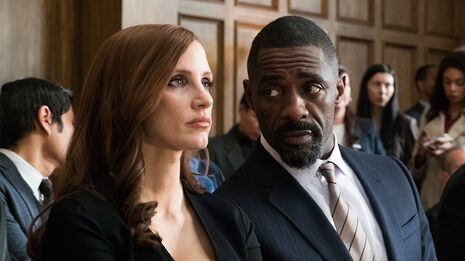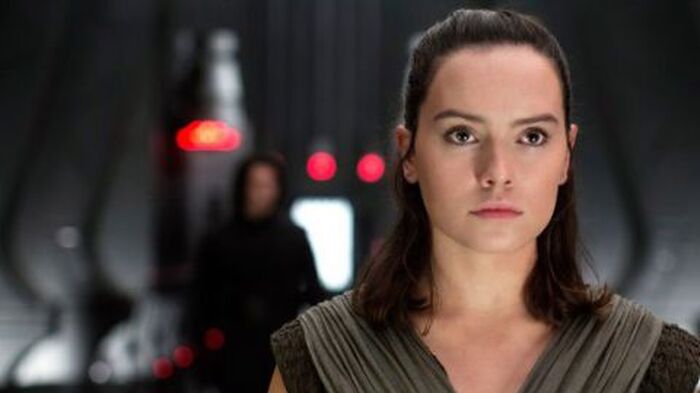Molly’s Game review: ‘a showcase for Sorkin’s script’
Toby Saer finds the writing of Aaron Sorkin’s directorial debut remarkable, but regrettably little beyond that

There are still those who hold Alfred Hitchcock’s belief that “the silent pictures were the purest form of cinema”. Their motto is “show, don’t tell”: why rely on words to communicate when an image can force people to connect the dots themselves? For these people, words must only be used to accentuate the visuals, or to reveal what could never be communicated with a picture.
Aaron Sorkin is their worst nightmare. The writer of A Few Good Men, The West Wing, and The Social Network is well-known for his fast-paced, quick-witted dialogue, which hijacks films, wresting control from even the best directors, and makes a movie instantly recognisable as belonging to him. It was inevitable that writing would never be enough, that he would eventually require the complete creative control afforded by directing, and thus Molly’s Game marks his step over that important threshold.
“Alongside his usual distinction, the film comes with Sorkin’s foibles”
Adapted from the similarly-titled book, the film traces the larger-than-life story of Molly Bloom, a former skier who ran illegal high-stakes celebrity-frequented poker games. These scenes, despite taking up most of the runtime, are merely flashbacks from the present-day narrative, which follows the resulting arrest and trial of Bloom.
It is clear from the beginning that the star of the film is more the writing than any of the hugely talented cast – Jessica Chastain is superb as Molly, ably supported by Idris Elba and Kevin Costner. The story is largely told in narration over quick-cut close-ups of faces, and the glamour of high-stakes gambling. Sorkin has little interest in telling a story visually as an impartial narrator. Instead he uses images to supplement the story recounted by his characters, transforming the film into a showcase for his script.
But what writing it is! If Sorkin’s weakness is that he puts disproportionate trust in his own screenplay, his trust is hardly misplaced. Sharp, flashy, poignant, frequently beautiful, his award-winning writing has rarely been better. His characters converse in either sharp, witty repartee, or in huge, show-stopping monologues; there is no in-between. His flair for structure is also on display – each scene comes at the right time and no climax is misplaced.
Unfortunately, alongside his usual distinction, the film comes with Sorkin’s foibles. Chiefly, he is an explainer: there is no room for ambiguity or mystery. He likes easily identifiable problems and simple solutions. He fancies himself both therapist and saviour – he points to simple flaws in his characters and their causes (his obsession with daddy issues returns) and ensures everyone is ‘fixed’ by the end.
His didactic approach, explaining all complexity in detail (hence the extensive narration, also simplistic expository animations of skiing and poker) is reminiscent of The Big Short, but without similar courage to acknowledge moralistic and instructive intentions. He struggles to resist the urge to add humorous quips, even at emotional moments, and retains his weakness for pithy, quotable lines which mean little – “You know what makes you feel okay about losing? Winning.”
A picture may be worth a thousand words, but for Sorkin pictures are hard, and a thousand words flow easily from his typewriter. He sees himself as a genius auteur, but lacks the discipline to restrain himself in some areas and extend himself in others to make truly great films. Nevertheless, he and his characters have so much fun that it is hard not to join in. They speak like no-one in reality, yet one cannot help longing that this glimpsed world of wit and aphorism was ours
 News / Clare Hall spent over £500k opposing busway 24 December 2025
News / Clare Hall spent over £500k opposing busway 24 December 2025 Comment / The ‘class’ of Cambridge24 December 2025
Comment / The ‘class’ of Cambridge24 December 2025 News / Caius mourns its tree-mendous loss23 December 2025
News / Caius mourns its tree-mendous loss23 December 2025 Comment / League tables do more harm than good26 December 2025
Comment / League tables do more harm than good26 December 2025 News / Girton JCR publishes open letter expressing solidarity with Palestine25 December 2025
News / Girton JCR publishes open letter expressing solidarity with Palestine25 December 2025









